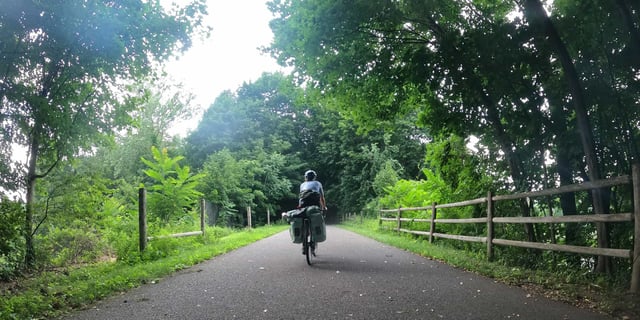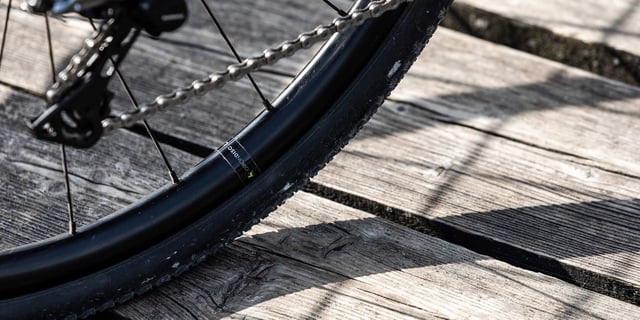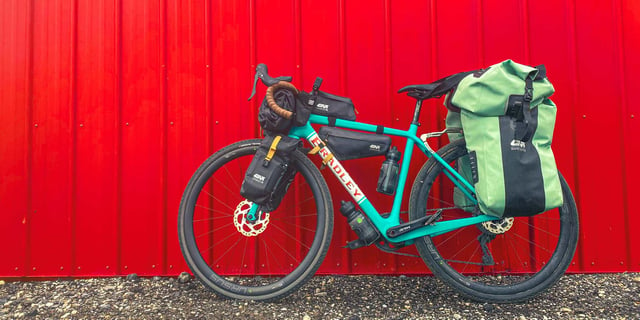
Travelling by bike alone or in company is a great idea. In fact, it is such a great idea that more and more people are opting to use their bicycle as a means of transport on holidays.
This way of travelling is known as cycle tourism. This is a growing market, which has a very positive impact on the economy and environmental sustainability. But it also brings many advantages to those who practice it.
Cycle tourism: definition
Cycle tourism is a form of cycling tourism, with various Italian and foreign destinations. This practice offers the opportunity to explore places, landscapes and cultures, travelling mainly by bike rather than by motorised means of transport, such as by car or public transport.
This mode of travel emphasises active and sustainable exploration. Cycle tourists immerse themselves in the surrounding environment, interact with nature and locals, and favour slow tourism.
The definition covers various types of cycling trips, from short daily trips through urban cycle paths, to long journeys by road or on rough roads, both through rural landscapes (rural cycle tourism) and in the city.
.jpg?width=576&height=288&name=interno%201%20(1).jpg)
The advantages of cycling
The development of cycling tourism in recent years is triggered by the fact that an increasing number of people are developing an awareness of the benefits of cycling. On the one hand are the benefits for sustainability. On the other, the benefits of physical and individual well-being.
Sustainability
Cycling is a sustainable mode of travel, both for the environment and for local communities.
First, we need to make a distinction. Not all cyclists use the bike as their only means of transport (pure cycle tourists). Some reach their destinations by train or car and then use the bicycle as their main means of transport.
In both cases, this choice has a positive impact on the environment since it eliminates or significantly reduces the polluting emissions of motor vehicles.
The reduction of emissions also corresponds to the reduction of city traffic and noise. At the same time, cycling tourism allows you to respect habitats and ecosystems, being characterised as a form of slow tourism.
However, sustainability does not only mean attention to the environment but also to the host communities. The phenomenon of over-tourism in recent years has been widely discussed and has created major problems in overcrowded destinations. These include, for example, Venice and Amsterdam.
The slow tourism of those who travel by bicycle, rather, contributes to the economic growth of local communities in a way that is sustainable over time and respectful of people’s cultures and habits. The choice to travel by bicycle also encourages a healthy and active lifestyle, creating a closer link between the human being and the ecosystem.
.jpg?width=576&height=288&name=interno%203%202%20(1).jpg)
Health
Travelling by bicycle obviously also means doing physical activities outdoors. The benefits of physical activity and an active lifestyle for health are now well known. Undoubtedly, combining them with the discovery of new places, new flavours and new cultures is an incredible opportunity.
If moving is good, in nature it is even better. In fact, numerous studies indicate that for us humans, contact with nature is a real cure-all, for the well-being of the body and the mind. Being outdoors, doing physical activities help improve the mood, attention skills, heartbeat regulation, blood pressure and even the immune system.
For example, in 2022 England’s National Health Service started a trial in Scotland where doctors could integrate medical prescriptions with nature walks, birdwatching and outdoor experiences, to improve the treatment of conditions such as anxiety, depression, high blood pressure and so on.
Holidays can become a privileged time to spend time out in nature, on your bike!
The economy
The report “Travelling by Bike 2023” (by ISNART for the Observatory on the Economy of Tourism of the Chambers of Commerce with Legambiente) clearly shows that travelling by bicycle is also good for the economy.
The report estimates that in 2022 in Italy, there was a turnover of a total of 4 billion euro (considering both pure cyclists and those who use bicycles as a means of transport once they reach their destination).
The cycling tourism trend is also bringing many foreign visitors to Italy. The most popular destinations for those who love to travel by bicycle are Veneto, Trentino Alto Adige and Tuscany. But cycling tourism is also allowing some areas of the south centre (Basilicata, Puglia, Abruzzo, Calabria, etc.) to extend the tourist season, with economic advantages for local operators and a reduction in the phenomenon of over-tourism in the summer months.
In short, in the Bel Paese, there is this rediscovery of cycling with the itineraries in Italy being many and evocative. They wind along the cycle paths in the cities of art, along the nature trails, between the villages and the riviera but also in the mountains, where many people decide to get around by MTB.
What sets a bike for cycle tourism apart?
There are bikes designed and designed and manufactured specifically for cycle tourism. They have characteristics that are particularly suitable for the purpose. Top on the list is undoubtedly the ability to support luggage loads.
The other characteristics that the a cycle tourism bike must have are:
- Reliability;
- Luggage space;
- Comfort;
- Large wheels;
- Reliable braking systems;
- Efficient and scalable gear systems.
Cycle tourism bikes are mainly used for long urban routes, along cycle paths and roads.They have many gears, to help with long journeys.
However, the choice of bike depends a lot on the type of trip to be undertaken.
Another popular option is the gravel bike, designed for long journeys on mixed and white roads. They are more versatile bikes as they can more easily face a variety of terrains but with harder gears.
They are usually able to accommodate wider tyres, for a better grip on uneven terrain. However, compared to cycle tourism bikes, some gravel bikes may have less space to transport loads and luggage. Bikepacking, on the other hand, allows you to mount special travel bags with a reduced size, minimising your luggage to the bare essentials.
Still, you can opt for trekking bikes, which are very similar to cycle tourism bikes but lighter. These are suitable for shorter routes, with lighter luggage loads. Finally, for those who prefer to be adventurous and discover the wilderness while travelling, it is possible to deck out an MTB to render it even more comfortable and fit for bikepacking.
.jpg?width=576&height=288&name=interno%202%20(1).jpg)


